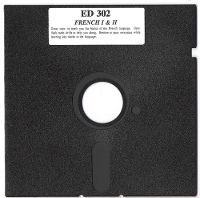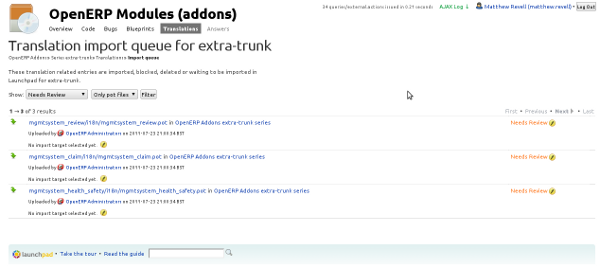 It’s incredible to think that more than 57,000 people have used Launchpad to translate software from English into their own language.
It’s incredible to think that more than 57,000 people have used Launchpad to translate software from English into their own language.
Many of them have worked directly on upstream projects, such as the OpenShot video editor. Others have helped translate Ubuntu packages of software. And then there’s a whole group of people who translate upstream software outside of Launchpad.
Today we’ve taken another step in bringing those efforts closer together by making it far easier to get upstream translations directly into Ubuntu.
We want the strings produced by translators working directly on software projects, whether in Launchpad or elsewhere, to be easily available to the Ubuntu translators and we believe it should be just as easy for software projects to take advantage of the work of Ubuntu translators.
How it works
Translation sharing between different releases of a project, or Ubuntu, has been available in Launchpad for some time now. Also, sharing translations between an upstream project translated in Launchpad and its Ubuntu package has been helping to bring those two communities of translators closer together.
What’s changed today is that strings from upstream projects who make their translations outside Launchpad are now just as easily imported and ready for use by Ubuntu.
Now, so long as the upstream project is set up in Launchpad to do this, a change made in an upstream project’s source code — whether hosted directly in Launchpad or elsewhere in Bazaar, Git, Subversion of CVS — will be available to Ubuntu translators just a few hours later.
Previously, Ubuntu took translation templates and files from the source packages as they were uploaded. There was no automated route for those new upstream translations to get into Ubuntu after that initial import. In effect, this allowed Ubuntu translations to diverge from upstream during the six month Ubuntu cycle.
This change has a nice side benefit of making it easier for upstream projects to make use of translation work done for Ubuntu, because the English strings will diverge far less and it will be easier to spot where the Ubuntu community has done new translation work, rather than their being a divergence due to the two efforts drifting apart.
To start with, this is available for projects that use intltools, which includes all of GNOME. To get your project’s translations automatically imported into Launchpad, see our help guide.
Photo by Kino Praxis. Licence: CC BY 2.0


 Good news if you run a project’s translation effort in Launchpad!
Good news if you run a project’s translation effort in Launchpad!
 There’s a new
There’s a new  It’s incredible to think that more than 57,000 people have used Launchpad to translate software from English into their own language.
It’s incredible to think that more than 57,000 people have used Launchpad to translate software from English into their own language.